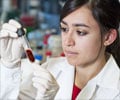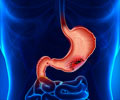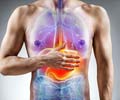Glossary
Abdomen: The part of the body that contains the pancreas, stomach, intestines, liver, gallbladder, and other organs.Achlorhydria: A lack of hydrochloric acid in the digestive juices in the stomach. Hydrochloric acid helps digest food.
Carcinogens: Cancer causing agents.
Colon: The long, coiled, tube like organ that removes water from digested food. The remaining material, solid waste called stool, moves through the colon to the rectum and leaves the body through the anus.
Digestive system: The organs that take in food and turn it into products that the body can use to stay healthy. Waste products the body cannot use leave the body through bowel movements. The digestive system includes the salivary glands, mouth, esophagus, stomach, liver, pancreas, gallbladder, intestines, and rectum.
Endoscopy: The use of a thin, lighted tube (called an endoscope) to examine the inside of the body.
Esophagus: The muscular tube through which food passes from the throat to the stomach.
Fecal occult blood test: A test to check for blood in stool. (Fecal refers to stool. Occult means hidden.)
Gastrectomy - An operation to remove all or part of the stomach.
gastric (GAS-trik): Having to do with the stomach.
Gastric atrophy: A condition in which the stomach muscles shrink and become weak. The digestive (peptic) glands may also shrink, resulting in a lack of digestive juices.
Gastroenterologist: A doctor who specializes in diagnosing and treating disorders of the digestive system.
Gastroscope: A thin, lighted tube used to view the inside of the stomach.
Gland: An organ that produces and releases one or more substances for use in the body. Some glands produce fluids that affect tissues or organs. Others produce hormones or participate in blood production.
Helicobacter pylori: Bacteria that cause inflammation and ulcers in the stomach.
Intraperitoneal chemotherapy: Treatment in which anticancer drugs are put directly into the abdominal cavity through a thin tube.
Liver: A large, glandular organ, located in the upper abdomen, that cleanses the blood and aids in digestion by secreting bile.
Ovaries: The pair of female reproductive glands in which the ova, or eggs, are formed. The ovaries are located in the pelvis, one on each side of the uterus.
Pancreas: A glandular organ located in the abdomen. It makes pancreatic juices, and it produces several hormones, including insulin. The pancreas is surrounded by the stomach, intestines, and other organs.
Pernicious anemia: A type of anemia (low red blood cell count) caused by a lack of vitamin B12.
Small intestine: The part of the digestive tract that is located between the stomach and the large intestine.
Stomach: An organ that is part of the digestive system. It helps in the digestion of food by mixing it with digestive juices and churning it into a thin liquid.
Stool: The waste matter discharged in a bowel movement; feces.
Ultrasound test: A test that bounces sound waves off tissues and internal organs and changes the echoes into pictures (sonograms).
Plummer vinson syndrome: A disorder linked to severe, long-term iron deficiency anemia; resulting in swallowing difficulty caused by "webs" of tissue that grow in the hypopharynx or esophagus.
Peutz Jegher syndrome: Hereditary condition that results in gastrointestinal polyps and freckles on the skin.
Gastrectomy: An operation to remove all or part of the stomach.
gastric (GAS-trik): Having to do with the stomach.
Gastric atrophy: A condition in which the stomach muscles shrink and become weak. The digestive (peptic) glands may also shrink, resulting in a lack of digestive juices.
Gastroenterologist: A doctor who specializes in diagnosing and treating disorders of the digestive system.
Gastroscope: A thin, lighted tube used to view the inside of the stomach.
Gland: An organ that produces and releases one or more substances for use in the body. Some glands produce fluids that affect tissues or organs. Others produce hormones or participate in blood production.
Helicobacter pylori: Bacteria that cause inflammation and ulcers in the stomach.
Intraperitoneal chemotherapy: Treatment in which anticancer drugs are put directly into the abdominal cavity through a thin tube.
Liver: A large, glandular organ, located in the upper abdomen, that cleanses the blood and aids in digestion by secreting bile.
Ovaries: The pair of female reproductive glands in which the ova, or eggs, are formed. The ovaries are located in the pelvis, one on each side of the uterus.
Pancreas: A glandular organ located in the abdomen. It makes pancreatic juices, and it produces several hormones, including insulin. The pancreas is surrounded by the stomach, intestines, and other organs.
Pernicious anemia: A type of anemia (low red blood cell count) caused by a lack of vitamin B12.
Small intestine: The part of the digestive tract that is located between the stomach and the large intestine.
Stomach: An organ that is part of the digestive system. It helps in the digestion of food by mixing it with digestive juices and churning it into a thin liquid.
Stool: The waste matter discharged in a bowel movement; feces.
Ultrasound test: A test that bounces sound waves off tissues and internal organs and changes the echoes into pictures (sonograms).
Plummer vinson syndrome: A disorder linked to severe, long-term iron deficiency anemia; resulting in swallowing difficulty caused by "webs" of tissue that grow in the hypopharynx or esophagus.
Peutz Jegher syndrome: Hereditary condition that results in gastrointestinal polyps and freckles on the skin.














